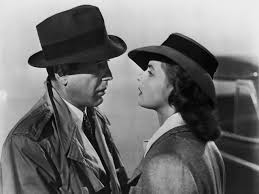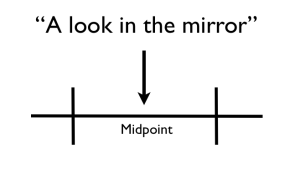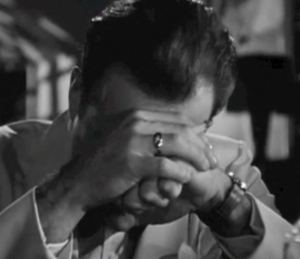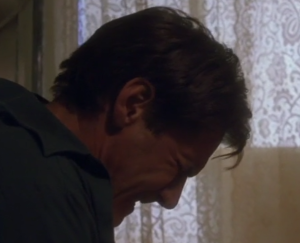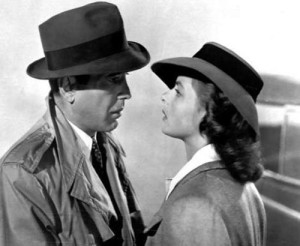by Debbie Burke
(This post is excerpted from my upcoming craft book, The Villain’s Journey ~ How to Create Villains Readers Love to Hate)
What is the difference between a villain and an antagonist? This question confuses many writers.
In the simplest terms: Villains are antagonists, but antagonists are not necessarily villains.
Antagonists don’t have to be bad guys with evil or malicious intent. They simply stand between the hero and the hero’s quest. They are obstacles the hero must overcome to achieve a goal.
Every genre needs antagonists. Without them, a story falls flat for lack of conflict.

Photo credit: public domain
The antagonist can be:
- A rival (two suitors vying for the same lover)
- An opponent (two sports teams fighting for a championship)
- A competitor (Microsoft vs. Apple)
- A situation or event (earthquake, volcanic eruption, hurricane, flood, wildfire, pandemic, war)
- Self-doubt inside the hero.
Here are a few examples of antagonists that don’t have malicious intent.
- In Ernest Hemingway’s The Old Man and the Sea, sharks strip the meat from Santiago’s magnificent marlin. They are hungry, not evil.
- In Charlotte’s Web by E.B. White, Fern’s father isn’t being mean when he picks up an axe to dispatch a runt piglet. He’s a farmer trying to provide for his family.
- In Sylvester Stallone’s film Rocky, Apollo Creed isn’t wicked. He’s a boxing champ protecting his title against underdog Rocky Balboa. In fact, the two opponents later become friends.
Various Genre Examples of Antagonists:
Romance needs someone or something that keeps the lovers apart.
- In Romeo and Juliet, parents forbid the lovers from seeing each other.
- In Casablanca, Rick, Ilsa, and Victor grapple with conflicts of love, loyalty, and duty during war.
Fiction for young readers often teaches life lessons like how to recover from failure, survive family breakups, or develop self-confidence.
- Diary of a Wimpy Kid series by Jeff Kinney spans 19 books about middle-schooler Greg Heffley who suffers bullying, struggles with adolescence, and endures the trials of growing up.
- Harry Potter begins as a powerless, downtrodden orphan. Through seven books, he discovers and develops his powers as a wizard, using his growing knowledge and strength to vanquish foes and come to terms with death.

Charles Dickens – public domain
Historical fiction captures the conflicts of a particular era.
- Charles Dickens’s novels address social/political issues like children’s rights (Oliver Twist), revolution (Tale of Two Cities), and judicial reform (Bleak House).
- John Steinbeck’s novels like Grapes of Wrath and Cannery Row spotlight the effects of the Great Depression.
- In Winds of War and War and Remembrance, Herman Wouk shows families caught in peril during World War II.
Mainstream fiction is an umbrella term for stories that explore the struggles of the human condition:
- To Kill a Mockingbird by Harper Lee
- Water for Elephants by Sara Gruen
- The Lovely Bones by Alice Sebold (features rape and murder therefore could also be considered crime fiction)

Photo credit: NASA
Science Fiction and Fantasy showcase imaginary worlds with unfamiliar, antagonistic landscapes characters must navigate.
- J.R.R. Tolkien explores Middle Earth.
- Harry Potter studies at the Hogwarts School of Witchcraft and Wizardry.
- Star Trek and Star Wars “go where no man [or woman] has gone before.”
A major challenge for writers is how to characterize a villain without resorting to two-dimensional stereotypes. Snidely Whiplash is fun in cartoons but not all that interesting to crime fiction readers.

Snidely Whiplash
Try reframing the way you look at your villains. Instead of seeing them as evil, think of them first as antagonists. Climb into their skin and see the situation from their point of view.
Most villains feel their behavior, however horrible, is justified. Their reasoning may not make sense to you or me but, to them, it does. They view the hero as a rival, opponent, or competitor who threatens them or stands in the way of what they want or need.
Numerous authors have said, “The villain is the hero of their own story.”
Author Chris Colfer says, “The villain is a victim whose story hasn’t been told.”
Summing up:
Stories require conflict.
Antagonists provide that conflict.
All stories need an antagonist. Not all stories need a villain.
Villains are antagonists, but antagonists are not necessarily villains.
~~~
TKZers: Does your current work in progress have an antagonist or a villain?
As a reader, what do you prefer? Stories with a clearcut villain to boo? Or stories with antagonists who are more difficult to pin down? Or another variation?
~~~
Want to learn more about Debbie Burke’s upcoming book? Click the title for details about The Villain’s Journey ~ How to Create Villains Readers Love to Hate.


